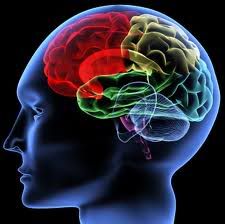
(Photobucket)
One day I turned on the classical music station in the car and saw my son completely relax. This was unexpected. I never liked classical music so this was his first exposure. I'd only ever seen him that calm once - when he was on an exceptionally high, but unsustainable dose of seizure medications during a prescription change.
Petite mal seizures ping around my son's brain all day long. Though medication keeps him functional, it only partially controls his epileptic activity. Since we can't safely dose much higher I often search for additional options to reduce those breakthrough seizures.
That got me wondering if the effects of classical music on seizures have been studied?
Turns out they have.
THE STUDIES

(Photobucket)
The Mozart Effect on Epileptiform Activity
Clin Electroencephalogr. 1998 Jul;29(3):109-19
Twenty-three of twenty-nine subjects had decreased epileptiform activity, including patients in a coma. The intensity of seizures also decreased.
Twenty-three of twenty-nine subjects had decreased epileptiform activity, including patients in a coma. The intensity of seizures also decreased.
#########
Epilepsy Behav. 2011 Aug;21(4):420-4.
Previous studies had shown reduced seizure activity during and immediately after listening to Mozart K.448. This study exposed children to 8 minutes of k.448 before bed for six months. Epileptic discharges significantly reduced progressively after 1, 2, and 6 months. All patients except those with occipital discharges benefited.
Previous studies had shown reduced seizure activity during and immediately after listening to Mozart K.448. This study exposed children to 8 minutes of k.448 before bed for six months. Epileptic discharges significantly reduced progressively after 1, 2, and 6 months. All patients except those with occipital discharges benefited.
##############
Epilepsy Behav. 2011 Mar;20(3):490-3.
Eight of eleven patients were seizure free or had very positive outcomes.
Eight of eleven patients were seizure free or had very positive outcomes.
Clin Neurophysiol. 2013 Aug;124(8):1528-35.
This recently published study confirmed the outcomes in previous studies: listening to Mozart decreased seizures in children. This one, however, looked at why. It detected an increase in parasympathetic tone during the music exposure. The authors suggest that Mozart stimulated parasympathetic activation, which may have been involved in the effect the music has in reducing seizures and their occurrence rates. ############
Mozart k.448 attenuates spontaneous absence seizure and related high voltage rhythmic spike discharges in Long Evans rats.
Epilepsy Res. 2013 May;104(3):234-40.
Showed that seizure reduction with k.448 also happens in rats.
############
Mozart k.545 mimics k.448 in reducing epileptic discharges in epileptic children
Evid Based Complement Alternat Med. 2012;2012:607517
This study of thirty-nine children looked at if another Mozart piece, k.545, could have similar seizure reduction capacity as k.448. It does. This study suggest that other music with lower harmonics might decrease seizures in children.
############
Mozart k.448 and epileptiform discharges: effect of ration from lower to higher harmonics
Epilepsy Res. 2010 May;89(2-3):238-45
Another study showing k.448 reduces seizures in some children. Researchers postulate that minimizing high frequency harmonics is good for epileptic children.
##########
My son's breakthrough seizures manifest as hyper-activity, impulsiveness, and occasional aggression. When those tell-tale symptoms arise I play k.448 and k.545 and it seems to help. I've even put them on his Ipad to listen to in the sensory room at school when disrupted by seizures. But I have yet to commit to a six month regimen of having him listen for eight minutes or more before bed. That's coming soon. I'll keep you posted.
Resources:
Mozart Can Cut Epilepsy - BBC News

This post is linked with Frugally Sustainable.
tags: epilepsy and Mozart, seizures and Mozart, Mozart reduces seizures in children, studies






